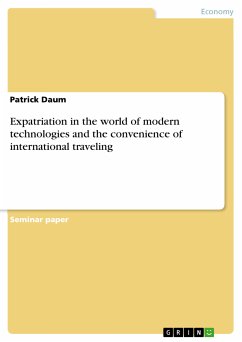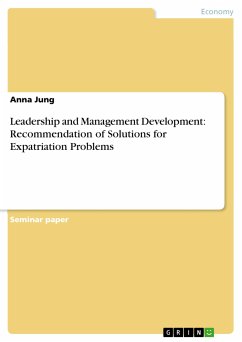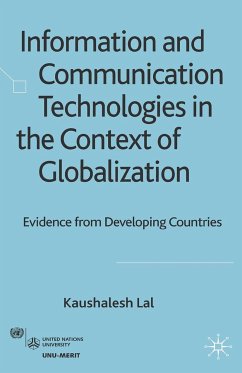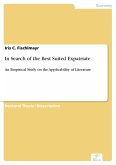Seminar paper from the year 2011 in the subject Business economics - Business Management, Corporate Governance, South Bank University London, language: English, abstract: Contents 1 Introduction 2 Expatriation - Discontinued Model? 2.2 Virtual Teams - Advantages 2.3 Costs 2.4 Improved Travelling Conditions 3 Expatriation - Importance in Global Economy 3.2 Virtual Teams - Disadvantages 3.3 Cultural Intelligence 3.4 Business Relationships 3.5 Investment in Human Capital 4 Conclusion ,,If globalization is seen as inexorable, then companies will need a globally mobile workforce tasked with administering their far-flung but rapidly growing operations" (cf. The Economist, 2010). Corporate business strategies involving mergers and acquisitions, greenfield investments or international joint ventures underline the importance of acting international throughout all business activities. Consequently human resources (HR) is facing an increased need for employees willing to work abroad for a limited time period. This essay critically examines the question whether ,,with the growth on modern communication technologies, such as email and video-conferencing, and the ease of international travel, expatriates will become an extinct species." Pros and cons will be discussed in order to weight different perspectives and provide a final conclusion.
Dieser Download kann aus rechtlichen Gründen nur mit Rechnungsadresse in A, B, BG, CY, CZ, D, DK, EW, E, FIN, F, GR, HR, H, IRL, I, LT, L, LR, M, NL, PL, P, R, S, SLO, SK ausgeliefert werden.









